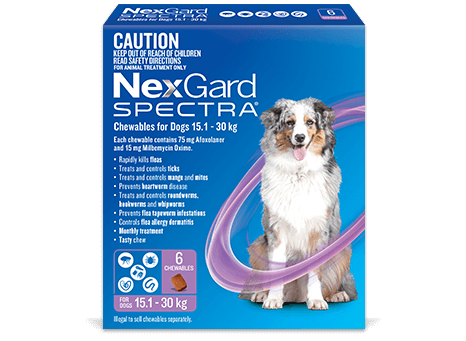As dog owners, we all want to ensure our furry companions lead healthy, happy lives. Understanding the role of dietary supplements in a dog’s diet is crucial, especially in the unique Australian environment.
This guide will delve into when and what supplements to use for your dog, ensuring a balanced approach to canine nutrition.
Introduction to Canine Nutrition in Australia
Australian dogs, like their counterparts worldwide, require balanced nutrition for optimal health.
However, factors like Australia’s climate, the breeds commonly found here, and locally available food sources can influence their nutritional needs.
This section explores the essentials of canine nutrition in the Australian context.


The Importance of a Balanced Diet for Dogs
A balanced diet is the cornerstone of your dog’s health. It provides the necessary nutrients for energy, growth, and overall well-being.
While commercial dog foods often meet these needs, certain life stages or health conditions may require additional supplements to maintain optimal health.
Understanding Dog Dietary Needs: An Australian Perspective
In Australia, dogs’ dietary needs can be influenced by lifestyle, breed, and even climate.
Active breeds may require more energy-dense foods, while older dogs or those with health issues might benefit from specific nutrients.
Understanding these nuances is key to providing the best care for your dog.
When to Consider Supplements for Your Dog
Supplements can play a vital role in addressing specific nutritional gaps in your dog’s diet. Knowing when to add them is crucial for their effectiveness and your dog’s safety.
This section covers various scenarios where supplements could be beneficial.
Identifying Nutritional Deficiencies in Dogs
Signs of nutritional deficiencies in dogs can range from dull coats and lethargy to more severe health issues.
If you notice any unusual symptoms in your dog, it’s essential to consult a veterinarian to determine if a dietary supplement is necessary.


Age-Related Dietary Needs: Puppies to Seniors
Different life stages come with different nutritional requirements. Puppies, for instance, need more calories and specific nutrients for growth, while senior dogs might benefit from joint health supplements.
Tailoring your dog’s diet as they age is vital for their long-term health.
Special Circumstances: Illness, Pregnancy, and High Activity Levels
Dogs with illnesses, pregnant or nursing dogs, and those with high activity levels have unique dietary needs.
In these cases, supplements can be critical to ensure they’re getting all the necessary nutrients for their specific conditions or lifestyles.
Types of Dietary Supplements for Dogs
There’s a wide range of dietary supplements available for dogs, each serving different purposes. This section explores the most common types of supplements and their benefits for canine health.
Joint Health: Glucosamine and Chondroitin
Glucosamine and chondroitin are popular supplements for maintaining joint health, especially in older dogs or breeds prone to joint issues.
These supplements can help alleviate the symptoms of arthritis, improving mobility and comfort.
Skin and Coat Supplements: Omega Fatty Acids
Omega fatty acids, commonly found in fish oil, are vital for your dog’s healthy skin and coat.
They can reduce inflammation and promote a shiny, healthy coat, which is particularly beneficial in the varied Australian climate.


Probiotics and Digestive Health
Probiotics are beneficial for maintaining a healthy gut flora, which is crucial for digestion and overall health. They can be especially helpful for dogs with digestive issues or after a course of antibiotics.
Multivitamins: Are They Necessary?
While some dogs may benefit from multivitamins, it’s important to consult with a veterinarian before adding them to your dog’s diet.
Multivitamins can provide a safety net for nutritional gaps but should not replace a well-balanced diet.
Choosing the Right Supplements: A Guide for Australian Dog Owners
With a plethora of supplements available, choosing the right one for your dog can be daunting. This section provides guidance for Australian dog owners on selecting safe and effective supplements.
Evaluating Quality and Safety Standards
When selecting supplements, it’s crucial to consider the quality and safety of the products.
Look for supplements that have been tested and approved by reputable organizations to ensure they meet high standards.
Understanding Australian Regulations for Pet Supplements
In Australia, pet supplements are regulated to ensure they are safe and effective.
Familiarizing yourself with these regulations can help you make informed decisions about the supplements you choose for your dog.
Top Recommended Supplement Brands in Australia
There are several high-quality supplements available in Australia. This section will highlight some of the top-recommended options, considering factors like efficacy, safety, and local climate adaptability.
- Blackmores – Known for a range of pet health products, including supplements for joint health and general well-being.
- Vetalogica – An Australian brand offering natural supplements for a variety of health needs, including skin, coat, and digestive health.
- PAW by Blackmores – A line from Blackmores focusing on natural ingredients for joint health, digestive health, and more.
- Hill’s Pet Nutrition – Offers prescription diet supplements tailored to specific health conditions.
- Royal Canin – Known for breed-specific and health-specific nutritional solutions, including supplements.
- NaturVet – Offers a wide range of supplements, including those for hip and joint, digestive, and overall wellness.
- Zesty Paws – Known for flavorful chewable supplements that target various health concerns, from joint health to immune support.
- Greenies – Popular for dental health supplements as well as multivitamins and joint health products.
How to Administer Supplements Safely to Your Dog
Administering supplements safely is as important as choosing the right one. This section covers the dos and don’ts of supplement administration.


Dosage Guidelines and Administration Tips
Following the correct dosage is crucial for the effectiveness and safety of supplements.
This section provides tips on how to administer supplements correctly, considering factors like your dog’s size and the type of supplement.
Monitoring Your Dog’s Response to Supplements
Observing how your dog responds to a new supplement is essential. Watch for any changes in behaviour, appetite, or health, and consult your veterinarian if you have any concerns.
Common Myths and Misconceptions About Dog Supplements
This section aims to dispel some of the common myths and misconceptions surrounding dog supplements, providing you with accurate and evidence-based information.
Debunking Popular Myths
There are many myths about dog supplements, from overestimating their benefits to misunderstanding their use.
A common myth is that all dogs, regardless of their diet, need supplements. In reality, many Australian dogs on a balanced diet may not need additional supplementation.
Another myth is that supplements can replace medication, which is not true and can be dangerous. Supplements should complement a diet, not replace veterinary care.
Evidence-Based Facts vs. Marketing Claims
Understanding the difference between evidence-based facts and marketing claims is crucial in making informed decisions about supplements. This section helps distinguish between the two.
Consulting with Veterinarians: Professional Advice for Your Dog’s Diet
Consulting with a veterinarian is always recommended when considering dietary changes or supplements for your dog. This section emphasizes the importance of professional guidance.


When to Seek Veterinary Advice
Knowing when to seek veterinary advice is crucial for your dog’s health. This section outlines scenarios where professional consultation is particularly important.
Working with a Vet to Tailor Your Dog’s Diet
Every dog is unique, and their dietary needs can vary greatly. Working with a vet to tailor your dog’s diet can ensure they receive the nutrition they need for their specific health conditions and lifestyle.
Integrating Supplements into Your Dog’s Diet
This guide has provided comprehensive insights into the world of dietary supplements for dogs.
The key takeaway is to approach supplementation with a balanced perspective, prioritizing your dog’s overall health and well-being.


Creating a Balanced Diet Plan
A balanced diet is the foundation of good health. Supplements should be used to enhance a diet, not replace it. Creating a diet plan that meets all your dog’s nutritional needs is essential.
Long-Term Health and Wellbeing of Your Dog
Ultimately, the goal is to ensure the long-term health and well-being of your dog. A combination of a balanced diet, appropriate supplements, and regular veterinary care can help achieve this.










